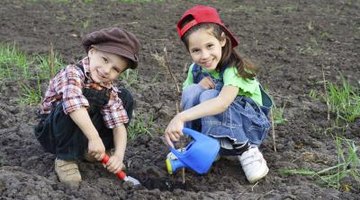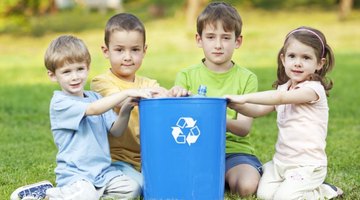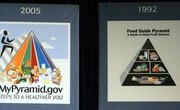Hands-on projects can help students understand the relationship between their actions and the environment. These projects may be quick demonstrations or challenges that last the entire school year. Whether you have your students plant a school garden, clean up a watershed or commit to lowering the school's climate impact, participating in environmental projects will encourage critical-thinking skills and a sense of achievement.
Elementary School Projects
Have a space on the school grounds reserved for children to grow vegetables. At the end of the year you can have a picnic with the fruits of their labor. Be sure to plant easy-growing vegetables such as carrots, tomatoes and cucumbers. Have the children start the seeds inside if you live in a climate that can get frost well into spring. Collect scrap paper over the course of a month and have the children come up with practical items out of the scraps. These could include necklaces, drinking cups, envelopes and art pieces.

Middle School Projects
Take a field trip or simply go outside the school and pick up trash. Note how different types can harm animals and the environment, such as soda can holders strangling birds or the trash building up and blocking a nearby waterway. You can partner with the U.S. Department of Agriculture's Natural Resources Conservation Service to monitor soil conditions around your school.

High School Projects
High school students can enroll in the Cool School Challenge by starting a Green Club, organizing recycling events and enlisting the school's administrators to reduce energy by conducting an energy audit. The U.S. Environmental Protection Agency has a Climate Change Emission Calculator Kit (Climate CHECK) to help with this project. Students can then help create a campus climate action plan based on the results. Have your students work with your grounds maintenance team to plant native trees that can benefit wildlife, such as berrying trees for birds.

Related Articles
References
Writer Bio
Kim Leslie has been writing for twelve years and holds degrees from Maryville College and the University of Tennessee. She has written for "Resource Recycling Magazine," "State Laws Recycling Update," "Recycling Laws International" and "Watermarks". She has knowledge of Lupus, GERDs, science education, environmental issues, eldercare, parenting, Pilates and yoga.











